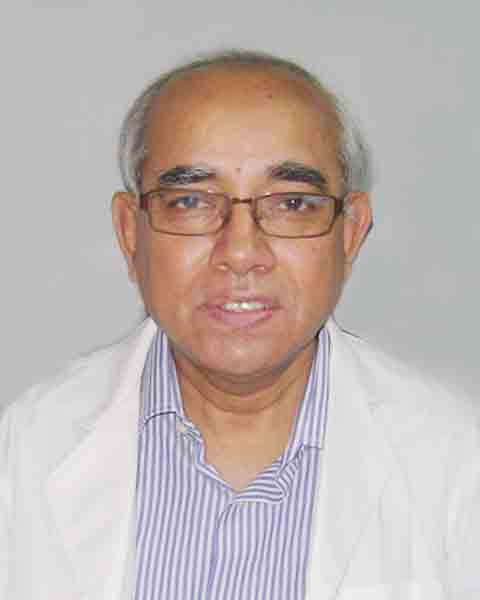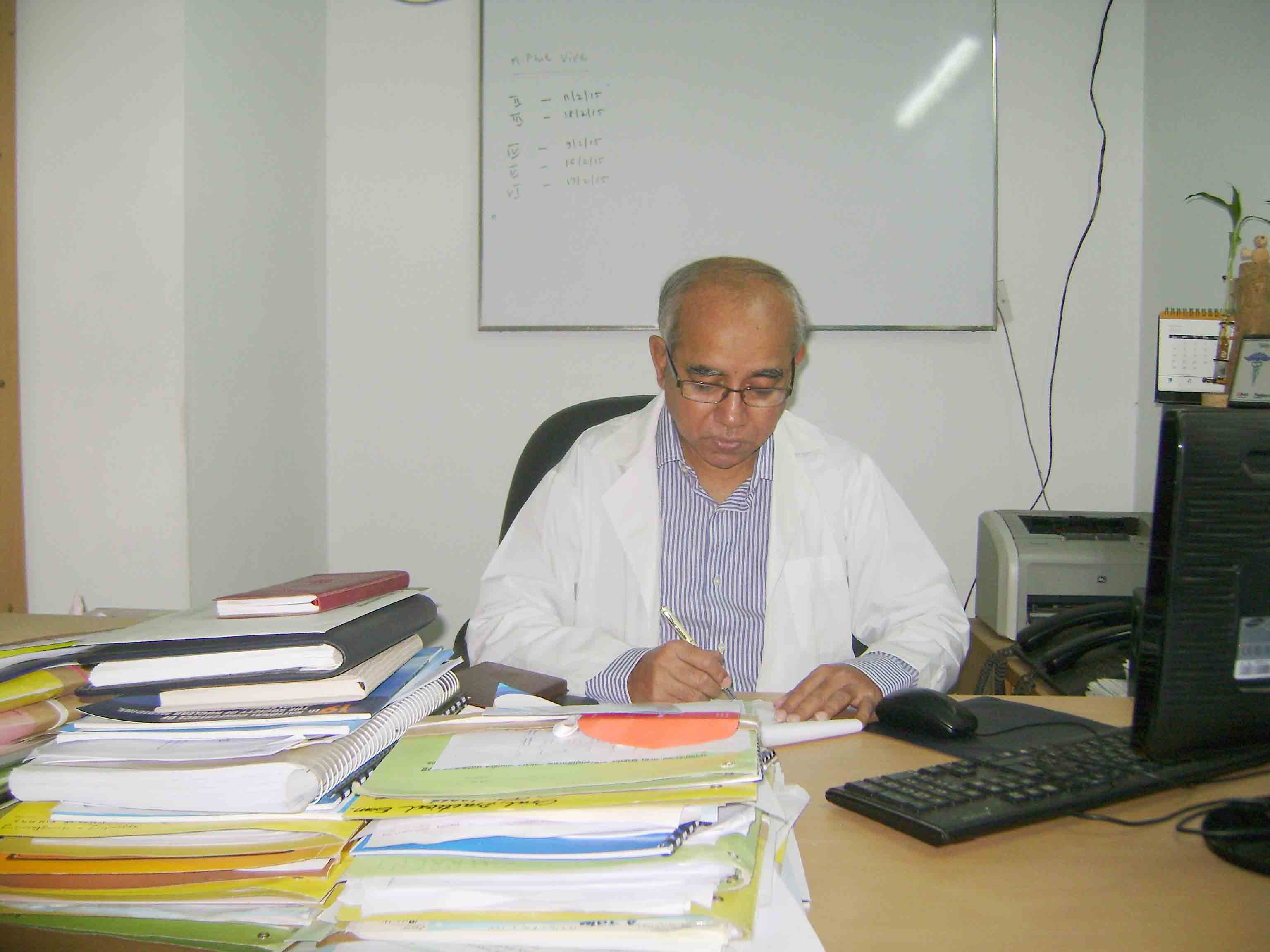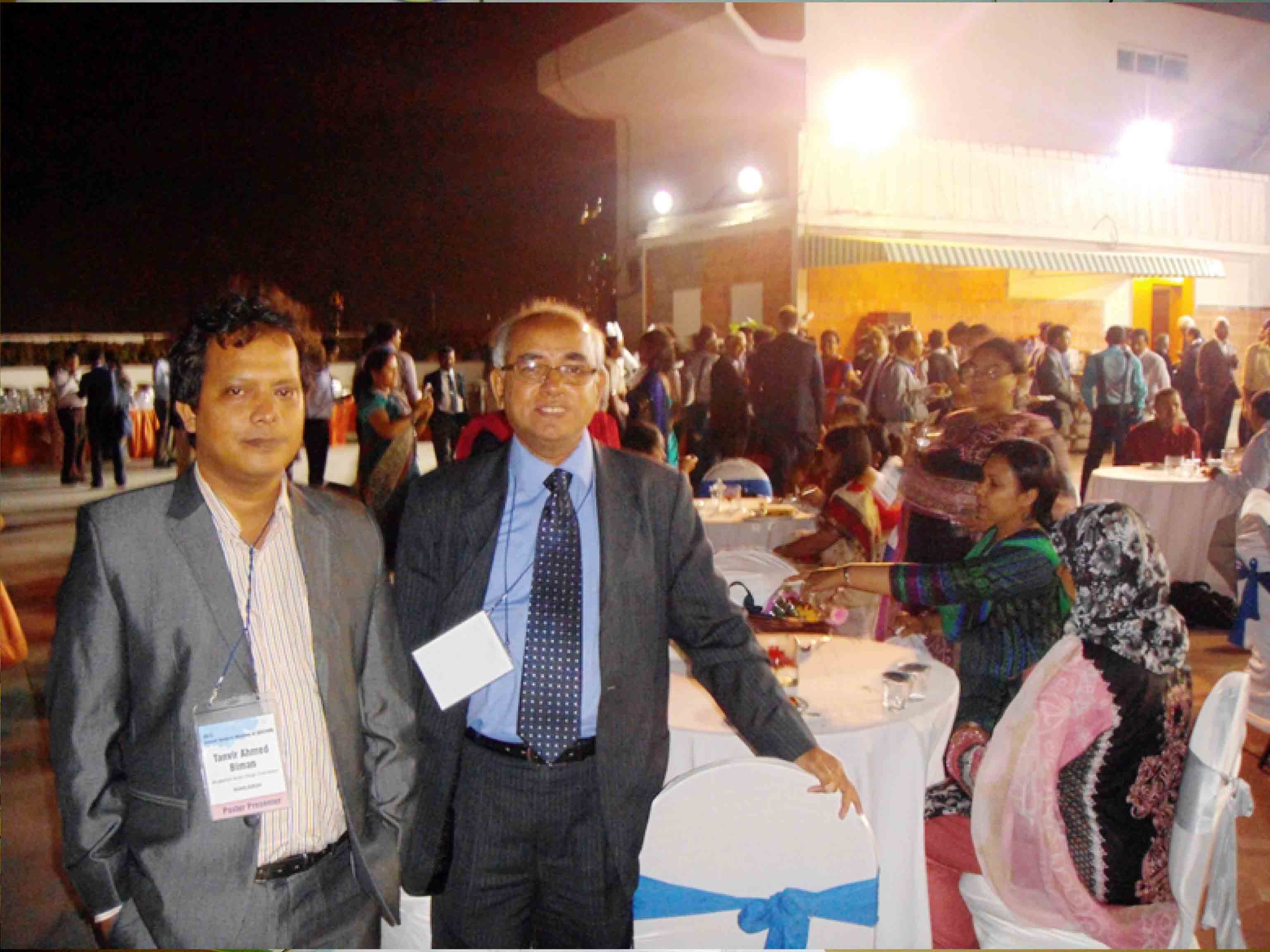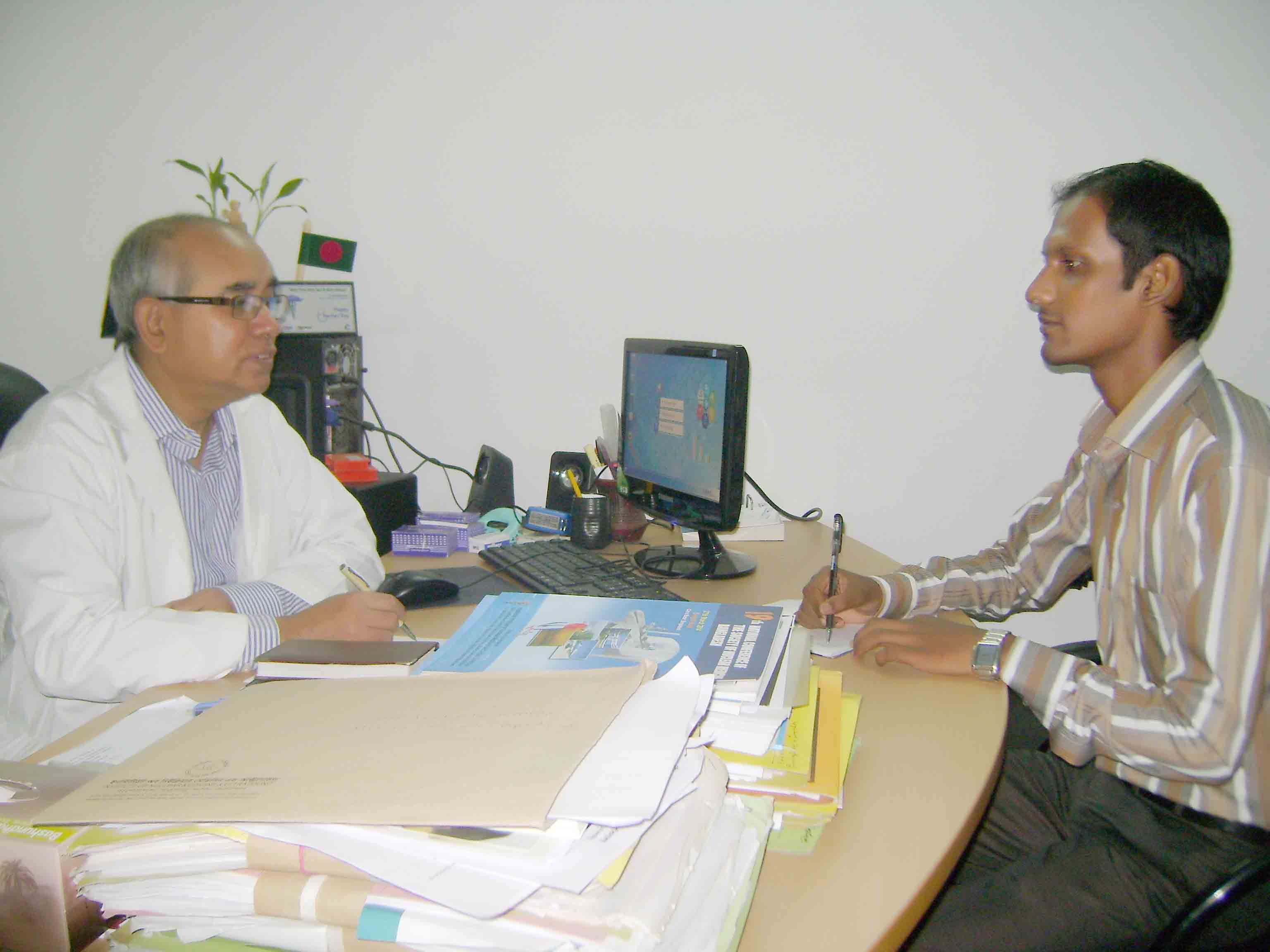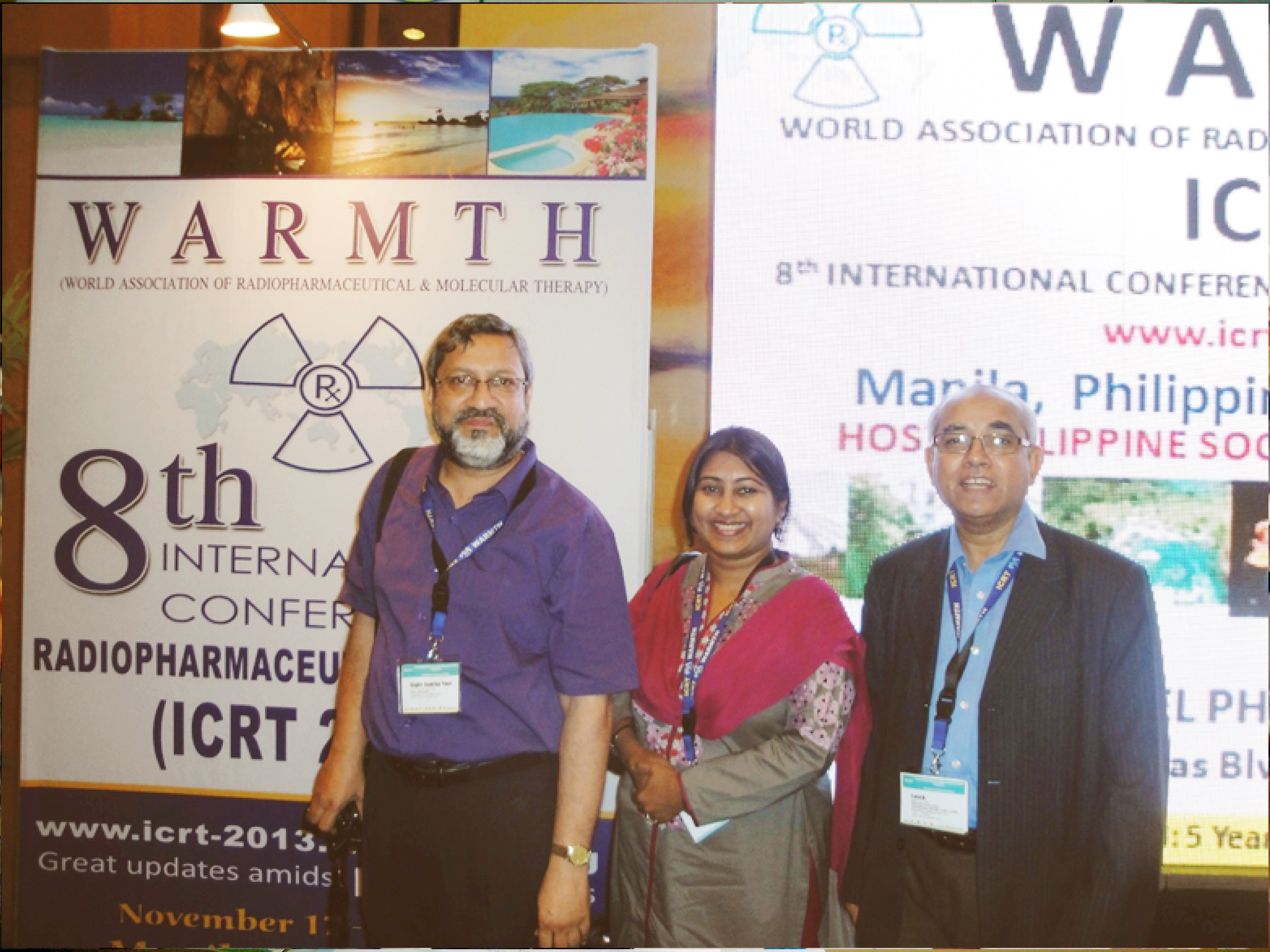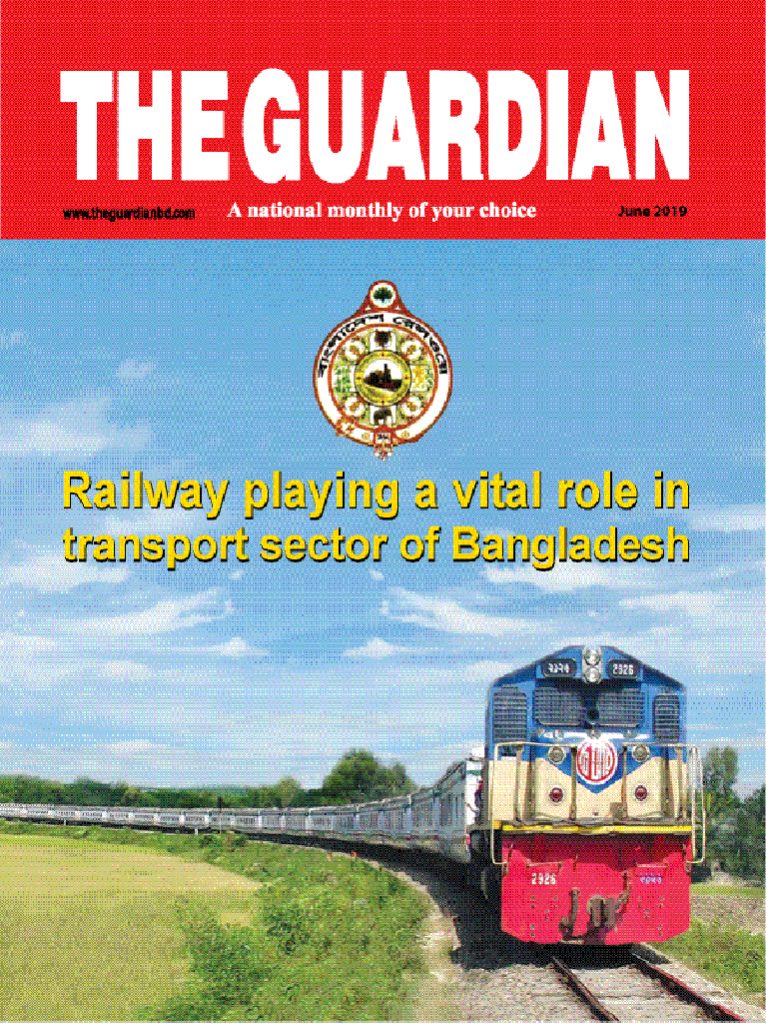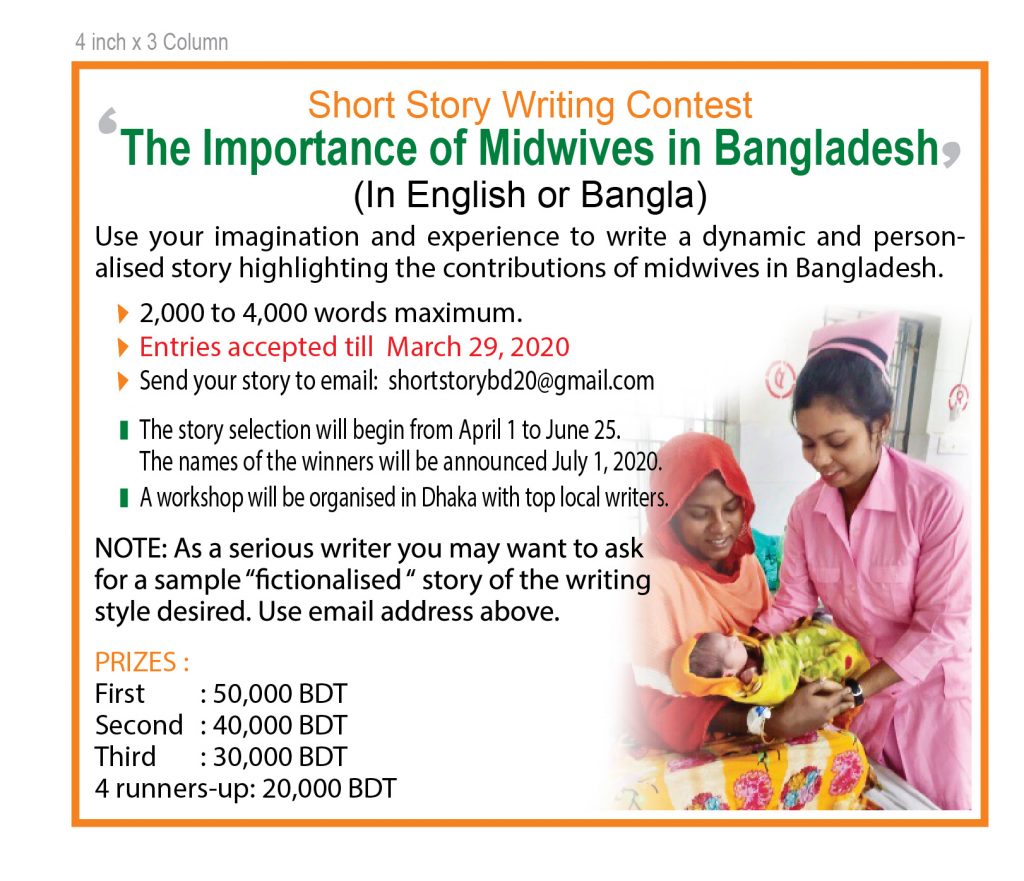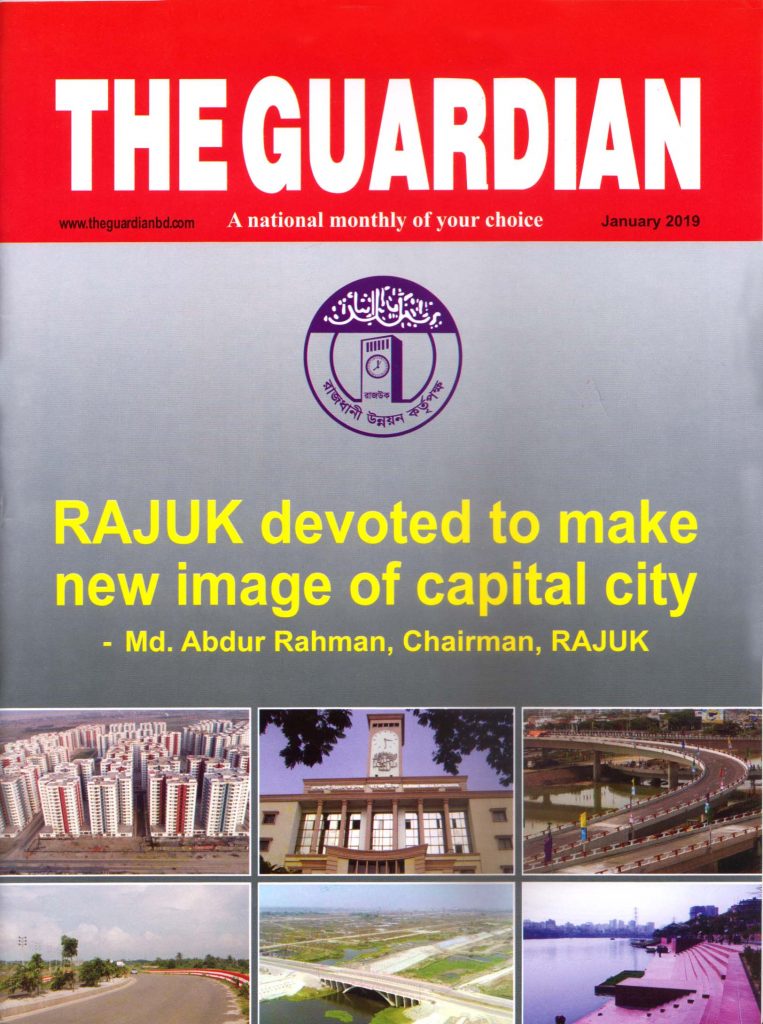-Professor Dr. Mizanul Hasan
Director
NINMAS, BSMMU, Dhaka
Interview by Abul Hasan
This is an age of challenge and development. So, medical science is developing fast throughout the world and Bangladesh also has progressed a lot in last 2-3 decades. Now there are a number of world class hospitals in Bangladesh. Now there are facilities here to treat most of the diseases at home.
National Institute of Nuclear Medicine & Allied Sciences (NINMAS) is also upgrading itself keeping pace with that and in a position to serve our people better. Dr. Mizanul Hasan, Professor & Chief Medical Officer and Head, In-Vitro Division, Nuclear Medicine and Allied Science of BSMMU told us this in an interview with The Guardian.
Professor Hasan replied to several questions, covering the activities of NINMAS and relevant aspects of nuclear medicine and treatment various diseases. The excerpts of his valuable interview are produced here for The Guardian readers at home and abroad:
The Guardian: Please give us a short introduction to the subject of Nuclear Medicine and Allied Science.
Prof. Mizanul Hasan: Nuclear Medicine is a branch of medical science contributing in diagnosis and treatment of various diseases for long. In Bangladesh also nuclear medicine is giving services to the patients for more than 50 years. This is a special branch of medicine where a small amount of radioactive substances are used for both diagnosis and treatment. Since radiation is concerned with this medicine this is used only in special cases. But nuclear medicine is unique in the sense that it can identify the disease in very early stage and as such patients get early treatment with better outcome.
In last few decades nuclear medicine has advanced fast with introduction of newer radiopharmaceuticals and sophisticated computerized equipment. Now with advent of technology nuclear medicine has been fused with other allied sciences like CT or MRI. Other imaging technology like ultrasonogram is also contributing in nuclear medicine as an allied science. Very recently Positron Emission Tomography another advanced nuclear medicine technology combined with CT, popularly known as PET-CT, is keeping a great role in diagnosis and treatment plan of various cancer diseases.
Now nuclear medicine is useful in diagnosis of diseases affecting almost all body systems starting from central nervous system to musculoskeletal organs. Its special role in management of thyroid disorder is worthy to be mentioned. Besides detection of kidney diseases, cardiac or heart problems, tumour detections and psychiatric disorders are important aspects of nuclear medicine activities.
The Guardian: And say what facilities for treatment are available at NINMAS?
Prof. Mizanul Hasan: National Institute of Nuclear Medicine & Allied Sciences (NINMAS) offers treatment mainly to the thyroid patients. This is a referral institute of thyroid and complete range of diagnosis and treatment of thyroid diseases are available here. Besides simple goiter, treatment for hypothyroid or hyper active thyroid are done here regularly. Especially for treatment of thyroid cancer, nuclear medicine has got no alternative. In this regard I like to say that this institute provides world class treatment for thyroid diseases and no patient need to go abroad for thyroid diseases including thyroid cancer.
Besides thyroid diseases by applying radioactive materials or radioisotopes, NINMAS treats patients suffering from various blood disorder like polycythemia vera. For prevention of some eye diseases treatment is given routinely in this institute. In near future facilities will be available for treatment of cancer patients suffering from metastatic bone pain.
The Guardian: In this context, would mention the number of bed available for patients at NINMAS and how many patients you can accommodate for treatment?
Prof. Mizanul Hasan: Most of the patients who get treatment in NINMAS does not need to stay in the hospital. Usually single dose of treatment is quite effective. The treatment is done on outdoor basis and patient goes home on the same day. Only the patients who receives high dose of radioisotopes, especially the thyroid cancer patients, need to stay in the hospital for 5-7 days. At present NINMAS has got 6 cabins where we can accommodate 10-12 patients. These cabins are expected to be open shortly.
The Guardian: And also mention the number of doctors, nurses, equipment and other relevant facilities available at your department for providing better treatment to patients and quality education to students.
Prof. Mizanul Hasan: NINMAS has got seven divisions through which the patients get services. At present about 25 doctors are working in the institute. Besides we have 5 medical physicists, 2 radiochemists, 2 electronic engineers and about 40 technologists to run the institute. However unfortunately we have no nurse yet for which we are trying our best. In fact previously this institute did not have any indoor facility and as such there was no post for nurses.
Nuclear Medicine is mainly based on equipment which are very much sophisticated and costly also. The institute has got one PET-CT, two SPECT gamma cameras, two thyroid uptake system, one thyroid camera, one bone densitometer (BMD) and 4 ultrasound machines in the major lists. Besides this institute has got a very reputed in-Vitro RIA laboratory where various hormones and tumour markers are analyzed with a precise accuracy and low cost.
NINMAS is also an educational institute affiliated to BSMMU. This institute offers post graduate degree in nuclear medicine to the medical doctors from home and abroad. Besides the institute gives training to the students of various post graduate medical courses like MD, MS or FCPS. It also organizes training programmes for technologists in the field of nuclear medicine.
Research is another major activity of this institute. Various research programmes are ongoing under the support of Bangladesh government or international organizations.
The Guardian: Keeping this in mind, would you focus on the problems, potentials and future plans of NINMAS?
Prof. Mizanul Hasan: This institute is almost 35 years old. The last up gradation took place also 10 -15 years back. The demand of the nuclear medicine service is growing day by day. The institute needs to be upgraded accordingly in terms of equipment as well as manpower. We are lucky that the Government has approved a project amounting Tk. 2475 by which we will be able to replace the old equipment with new upgraded versions by the end of this year. That will uplift the institute to a new look. However shortage of manpower especially that of nurses are yet to be solved. We are trying our best to overcome that.
Cyclotron, a device where ultra short isotopes are produced, will be installed in NINMAS for constant supply of radioisotopes for PET-CT. This will serve both BSMMU & DMCH.
The Guardian: In the end, please give your valuable message for patients and medical students and especially for the mass-people of Bangladesh?
Prof. Mizanul Hasan: Medical science is developing fast throughout the world. In Bangladesh also we have progressed a lot in last 2-3 decades. Now we have a number of world class hospitals in Bangladesh. Now we have facilities and treat most of the diseases at home. NINMAS is also upgrading itself keeping pace with that and in a position to serve our people better.

